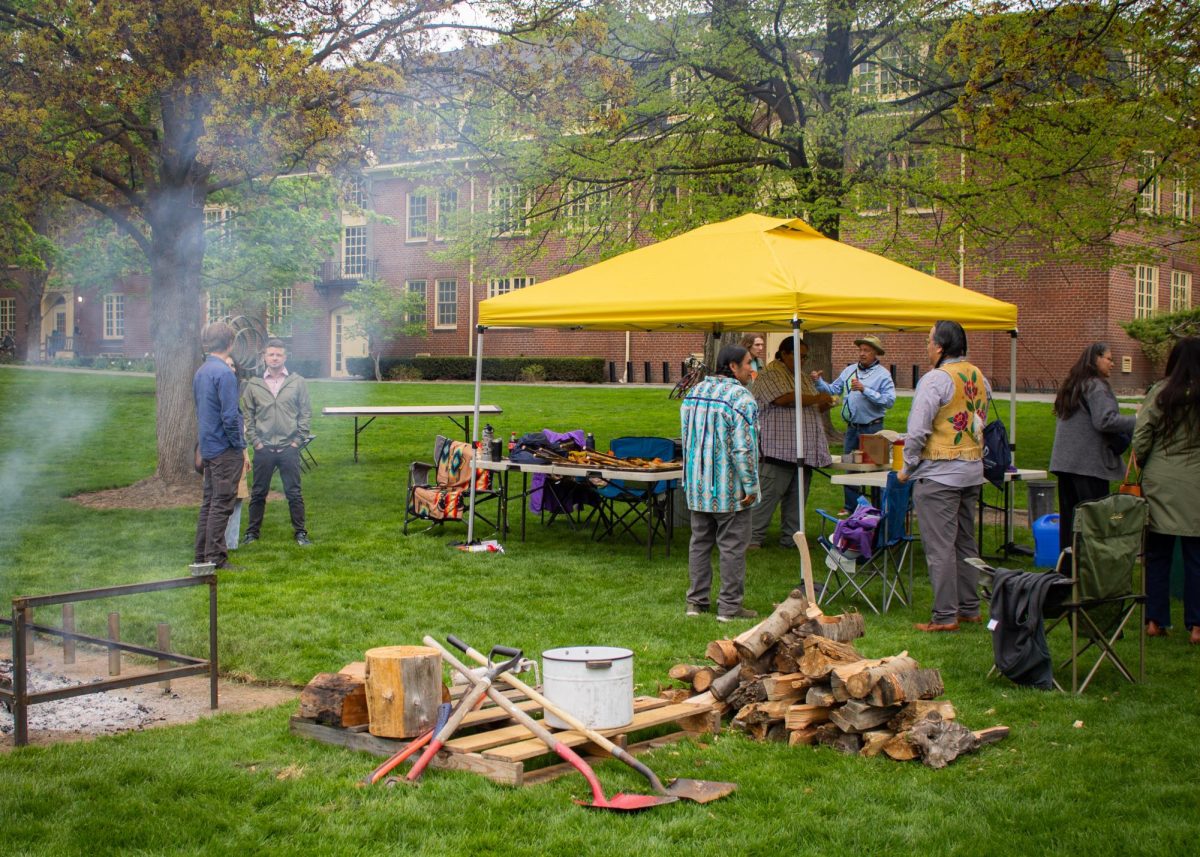The bookstore sells shirts with cartoon missionaries. The student handbook and official Web site have a blurb about Marcus and Narcissa Whitman and their role in Walla Walla and Whitman’s founding. A few t-shirts with missionary position jokes are floating around. But how much does Whitman’s past really play a role in its present?
“I don’t know that much about [Whitman’s history]. I do feel like it’s downplayed. No one’s ever really informed me about it,” said senior Nora Hawkins. “I’m sure Whitman in general is proud, but when I was applying that was not emphasized. It’s just not the focus.”
“I don’t think the school projects that image,” said Nicole Angus, a first-year. “If anything, it seems like they’re trying to step away from that. But you can’t deny that history to an extent, even if you wanted to.”
Denial was the furthest thing from the minds of Whitman officials a century ago.
“From the start, Whitman was concerned with its own history,” said Michael Paulus, archivist and special collections librarian at Penrose Library.
That history is rich. In 1836, Marcus and Narcissa Whitman founded a Christian mission near Walla Walla in order to teach the local Cayuse Indian population. However, the Whitmans were killed by Native Americans in 1847, inspiring Cushing Eells to found Whitman Seminary (later Whitman College) in the slain couple’s honor.
“Marcus Whitman was depicted as a martyr and national hero. A Christian, a martyr, a patriot,” Paulus said. “It was a great story, and it raised a lot of money for the college. They latched onto the legend of Marcus Whitman and got a lot of mileage from the story at a time when it was difficult for private Northwest colleges to survive.”
Stephen Penrose, he said, traveled the country telling the tale of Marcus and Narcissa Whitman––a tale that helped stabilize the struggling college.
But by the 1970s, Paulus explained, people had began to question Westernization and its toll on Native Americans.
“The college was changing. There were larger things going on nationally and there was a backlash against missionaries like the Whitmans, who were vilified,” Paulus said.
This view of history has persisted. Hailey Flanigan, a sophomore, has studied Whitman’s history.
“Most of the students don’t know the story very well at all. I think that those students who do know about the story believe that the Whitmans were bad people who deserved to die.”
“I think the college has realized that it is problematic so they’ve decided to downplay that part of the college’s history,” said senior Todd VanOsdol, who has been researching Whitman history, in an e-mail.
And yet, traces remain: The school has retained the “Missionaries” mascot, for one.
The Whitman mascot remains a source of disagreement.
“Most American schools have religious roots, because higher education was often part of a missionary enterprise. But many schools have moved away from their religious pasts,” Paulus said.
“It seems like the college has made a concerted effort to tuck the whole ‘Missionaries’ thing under the rug,” VanOsdol said.
“This issue is almost as old as the college itself,” he added, recounting past suggestions for name changes including the Wildcats (1923), the Northern Hawk Owls (1990s) and the Mallards (courtesy of Tom Cronin). “This issue comes up every couple of years and it doesn’t seem like anyone has had a whole lot of energy to change it.”
“I would advocate a change,” said Hawkins, who is co-captain of the women’s rugby team, which uses a separate mascot of a tractor. “I don’t think it reflects Whitman, we’re not about converting people, we’re about critical thinking and helping people.”
Chris Faidley, a junior basketball player, said that other than chants, the mascot isn’t used extensively.
“I know that we never have sweats or shirts made saying ‘missionary basketball,’ everything is ‘Whitman basketball,'” he said in an e-mail. “Other schools have their mascot’s name across their chest on most of their home uniforms (Loggers, Pioneers, Bearcats, Loggers, Boxers, Bruins, etc.). We, as a sports program, most definitely do not.”
Faidley, however, does not see the need for a change in mascot.
“I don’t think it will make much of a difference in how our school is perceived. We could make our mascot mean something by representing it with WINS.”
Others are more adamant about the need for change.
“A missionary, by definition, is insensitive to culture and diversity, nor are they especially open-minded or tolerant,” VanOsdol said. “These are qualities that are in direct conflict with what Whitman wants to be. Whitman aspires to be all the things that the Missionary is not.”
“It just no longer holds significance for the present student population,” Hawkins added.









Mary Jean Corliss • Nov 3, 2007 at 9:41 am
I’m a 1954 graduate and did know the history of the Whitmans. Husband’s first teaching post was at Illinois College in Jacksonville, Ill. in 1957. At that point the college was REVIVING its Christian roots, unfortunately. Admissions from Chicago and from a strong Jewish community there became almost non-existent and the appeal of the college was that it was Christian college. We knew almost from the first week there that we would not stay, even though the History Dept, my husband department, was very openly defying the new president and quite tolerant of all student cultural backgrounds. But the faculty were REQUIRED to go to “Chapel” and attend the sports programs. There was no emphasis on publishing by the faculty and many of the faculty had no degrees higher than a master’s. Such restrictive religious emphasis was quite different from the college’s original mission. This was the college from which William Jennings Bryan graduated. Two years later we left, sadly leaving some good friends in academe but shedding an educational institution which put the wrong emphasis on higher education, trading doctrine for the free exchange of ideas and culture.